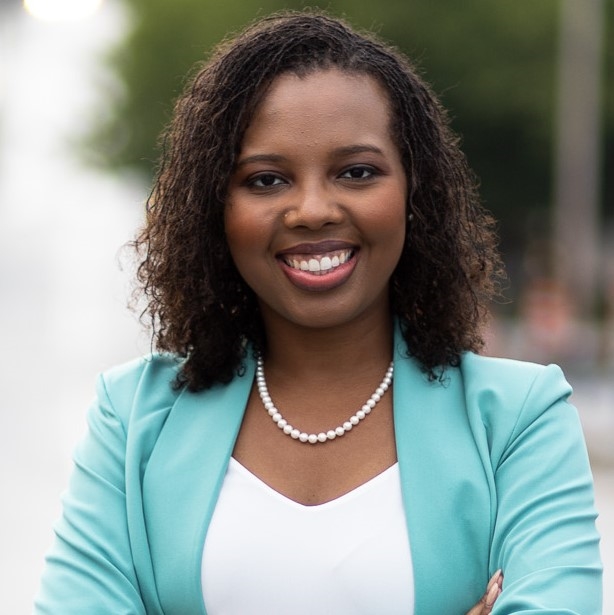When Chulyndria "Lyn" Laye became a licensed associate counselor in July 2020, she immediately started a private practice focused on the mental health of those in her hometown of Dumas, Arkansas.
She lives in Rogers now but maintains her connection to the Arkansas Delta area. Laye has held several community events there through her practice, Purple W.I.N.G.S. Counseling Services. W.I.N.G.S. is an acronym for Working to Inspire and Nurture a Greater Self. "That's what I aspire to do as a therapist, as a researcher and as a future educator," she said.
Laye is also on the staff at Eason Counseling and Associates in Rogers and a doctoral student in the Counselor Education and Supervision program at the U of A. She earned a bachelor's degree in child development from the U of A in 2011 and a master's in counseling psychology from Capella University. She has extensive training through the U of A office of play therapy and is a 2021 graduate of the National Association for Play Therapy Leadership Academy.
Laye is a mental health advocate for all, but she's especially drawn to helping children, teens and adults in underrepresented communities. Her doctoral research is focused on the "Strong Black Woman schema."
"The Strong Black Woman schema and the mental health of Black women is something that is near and dear to my heart," she said. "The SBW schema is defined as the ideal way in which Black women should act, and it is identified by the characteristics of emotional restraint, independence and caretaking."
These social roles are typically considered a "good thing" and the way in which Black women are supposed to be, Laye said. But feeling confined to these roles can cause an emotional strain on Black women, often leading to mental health illnesses.
"Black women are starting to notice that although this idea of being strong is a positive thing, it is also a representation of negative feelings and a perpetuation of horrible stereotypes created by other groups," Laye said. "This research is personal to me as it relates to the world I live in daily, and I want so badly to be able to fully understand how to best serve people that look like me in therapy."
Laye said U.S. history has shown African Americans that they can't trust research, medicine or studies. She cited the Tuskegee experiments, where the U.S. government conducted unethical experiments on Black men from 1932 to 1972. African Americans often feel that seeking physical or mental health services is taboo, she said.
"In fact, in most situations, we often feel that a therapist could not understand us, and we tend to have bad experiences when we do participate in sessions," she said.
Laye is helping bridge that gap.
She became interested in counseling while teaching preschool for underprivileged children. She noticed her students acting out scenarios from their lives during playtime with other children. She said they were clearly struggling but seemed unable to verbalize their emotions. She began to do her own research. "I wanted to help them find a voice, help build their confidence and give them a safe space to express themselves," Laye said. "This research led me to play therapy, which led me to a master's degree in counseling psychology, and the rest is history."
She wants to help African Americans of all ages in the same way she sought to help the children in her care. "I want to give them a safe space to express themselves and the confidence to explore their thoughts, feelings and emotions," she said.
This story is the latest in a series called the Dean's Spotlight, featuring outstanding students in the College of Education and Health Professions. Visit COEHP's online magazine, the Colleague, for more news from the six units that make up the College. Visit the Counselor Education and Supervision page for more information on COEHP's counseling programs.
Topics
Contacts
Shannon G. Magsam, director of communications
College of Education and Health Professions
479-575-3138, magsam@uark.edu
